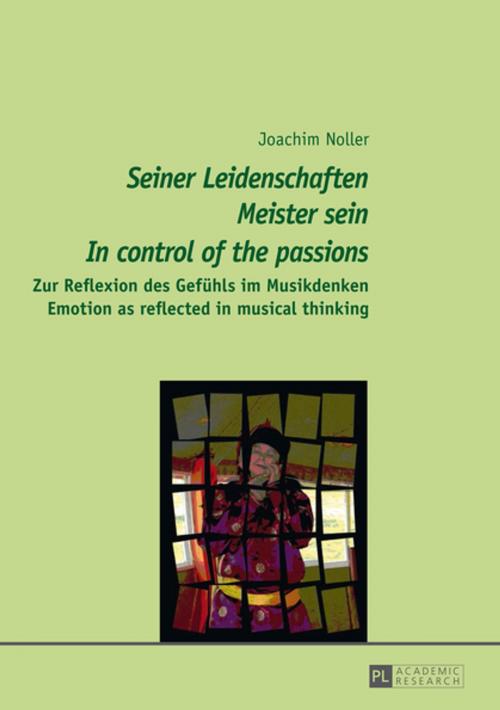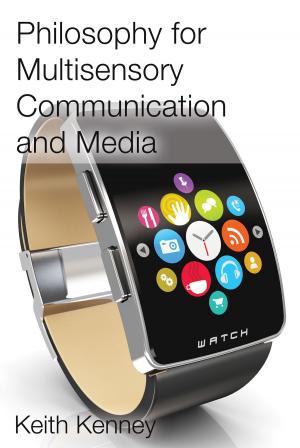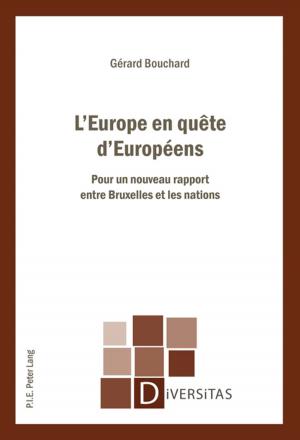«Seiner Leidenschaften Meister sein» - «In control of the passions»
Zur Reflexion des Gefuehls im Musikdenken - Emotion as reflected in musical thinking
Nonfiction, Entertainment, Music, Theory & Criticism, History & Criticism, Reference| Author: | Joachim Noller | ISBN: | 9783653995725 |
| Publisher: | Peter Lang | Publication: | April 1, 2014 |
| Imprint: | Peter Lang GmbH, Internationaler Verlag der Wissenschaften | Language: | English |
| Author: | Joachim Noller |
| ISBN: | 9783653995725 |
| Publisher: | Peter Lang |
| Publication: | April 1, 2014 |
| Imprint: | Peter Lang GmbH, Internationaler Verlag der Wissenschaften |
| Language: | English |
Was heißt es, wenn Carl Philipp Emanuel Bach vom ausführenden Musiker fordert, er müsse selbst gerührt sein, bevor er seine Zuhörer in Rührung versetzen könne? Der Autor schreibt über die Idee der Emotion, über ihre Rolle im Szenario sogenannter Musikanschauung (von ca. 1750 bis heute). Von Interesse ist dabei weniger die Gefühlshaltigkeit der Musik selbst, als vielmehr die Art, wie das Musikdenken dieselbe be- und verhandelt; nicht Emotionen in tatsächlicher Wirkung, sondern wie sie, als Denkfigur, in musikalischen Zusammenhängen theoretisch bewältigt werden.
What does it mean when Carl Philipp Emanuel Bach demands that a performing musician must himself be moved before he can move his listeners? The author writes about the idea of emotions and their role in the scenario of what is called music appreciation (from about 1750 till the present day). His focus is not primarily on the emotional content of music as such, but rather the way in which it is treated in thinking about music; not on the actual impact of emotions, but the way in which they have been thought about in a musical context, as concepts around which a theoretical discourse crystallizes.
Was heißt es, wenn Carl Philipp Emanuel Bach vom ausführenden Musiker fordert, er müsse selbst gerührt sein, bevor er seine Zuhörer in Rührung versetzen könne? Der Autor schreibt über die Idee der Emotion, über ihre Rolle im Szenario sogenannter Musikanschauung (von ca. 1750 bis heute). Von Interesse ist dabei weniger die Gefühlshaltigkeit der Musik selbst, als vielmehr die Art, wie das Musikdenken dieselbe be- und verhandelt; nicht Emotionen in tatsächlicher Wirkung, sondern wie sie, als Denkfigur, in musikalischen Zusammenhängen theoretisch bewältigt werden.
What does it mean when Carl Philipp Emanuel Bach demands that a performing musician must himself be moved before he can move his listeners? The author writes about the idea of emotions and their role in the scenario of what is called music appreciation (from about 1750 till the present day). His focus is not primarily on the emotional content of music as such, but rather the way in which it is treated in thinking about music; not on the actual impact of emotions, but the way in which they have been thought about in a musical context, as concepts around which a theoretical discourse crystallizes.















